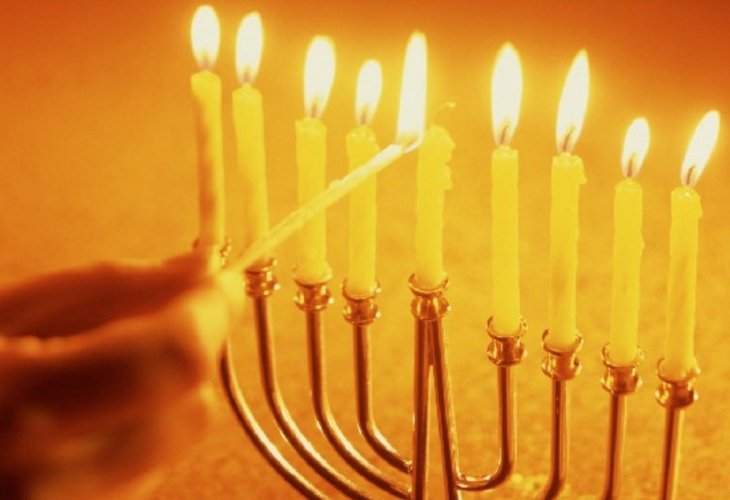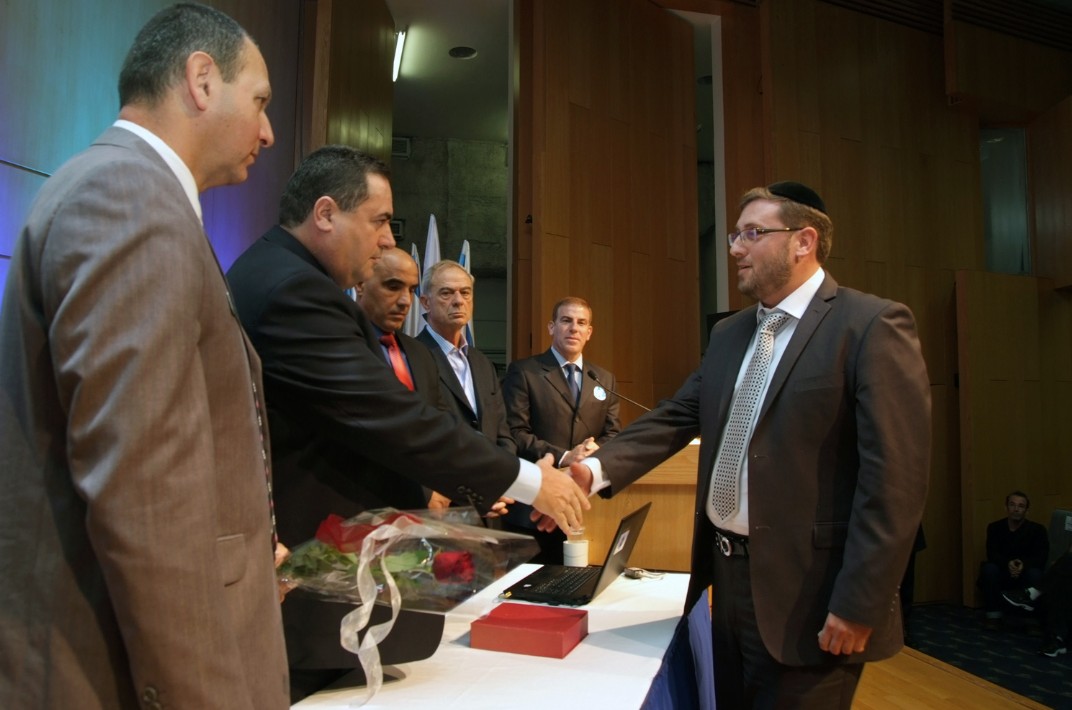Shlomi Katz: "When My Child Was Trapped Under the Bus Wheels - I Felt My World Collapse"
Shlomi Katz lost his son 16 years ago in a tragic road accident. The boy's coat got stuck in the bus door, dragging him under the wheels. This led Katz to establish 'Chafetznu L'chaim', an organization dedicated to raising awareness about road safety and working through various unconventional means to bring change.
 Shlomi Katz
Shlomi KatzSixteen years have passed since the day R' Shlomi Katz learned about his young son's injury in a road accident. Despite the passage of time, he vividly remembers every detail of that day, and the sorrow and deep mourning linger in his voice as he speaks about the accident. Nothing has faded.
"It happened when my eldest son, who was three years old at the time, was alighting from the bus that brought him back from school," he recounts. "The driver closed the door, my son's coat got caught, and he was dragged down the road, under the wheels. Apparently, people passing by on the street shouted for the driver to open the door, but it was too late, and there was nothing left to be done."
During the tragedy, R' Shlomi was teaching a class of eighth graders, and midway through the lesson, he received a phone call informing him that his child had been injured. While initially assured that it wasn't serious, he was advised to go home. "Whenever I recall those moments, I feel that within Hashem's decree, there was so much compassion," he notes. "Initially, I truly believed nothing significant happened, so I told my students I had to leave, asked them to say Tehillim, but reassured them there was no need to worry. On my way home, I received another call suggesting I head straight to Hadassah Ein Karem. Even then, I failed to grasp the severity of the situation, as if blind to the possibility of something catastrophic. But upon arriving at Hadassah, I was given the most devastating news in the world—I had lost my child."
The Decision: Take Action
Shlomi shares that the emotions during the seven-day mourning period were unbearable. "The disaster was incomprehensible, and I didn’t know how to digest the events at all. While we were sitting shivah, we also heard many similar stories of accidents and severe tragedies. What for me was most horrifying was the public perception that despite the disasters, there seemed to be a notion that road accidents don't happen, no one talks about them, and no one makes efforts to prevent such situations from recurring.
"I remember, shortly after our tragedy, there was another severe incident involving a young girl who stepped off a transport van and tried crossing to her home, but the location was amidst a sanitation workers' strike, filled with garbage bags. She attempted to maneuver over the piles, but the driver inadvertently ran over her, thinking he had driven onto a garbage bag. I remember hearing about this and feeling as though my heart was bleeding. Instinctively, I visited the girl's family, and there I heard similar discussions: 'Until when? What will happen? When will tragedies end?' But practically, nothing had been done.
"That was when I told myself, 'If no one does anything, I will pick up the glove,'" he explains, emphasizing, "We are dealing with the most severe plague that exists in our country. Since our nation's establishment, over 36,000 people have been killed in road accidents. More people have died in accidents than in all wars combined. I haven't even mentioned those injured, physically or mentally, who bear lifelong scars from road accidents. I felt compelled to act, which led to the founding of the 'Chafetznu L'chaim' organization."
 Shlomi Katz with the Minister of Transport
Shlomi Katz with the Minister of Transport
Sages of the Generation Said: "This is Your Mission"
The first step R' Shlomi took in the 'Chafetznu L'chaim' framework was to meet with great scholars across various communities. Speaking from a heart torn apart, he expressed his desire to bring significant change, establishing something truly impactful to save lives.
"I remember," he adds, "when I spoke with Rabbi Yosef Sholom Elyashiv ztz"l, he asked me, 'Are you sure you can start such an organization?' To which I replied, 'If I try and truly desire it, I am confident, with Hashem’s help, I'll succeed.' The Rabbi then told me, 'There is a clear teaching stating that the court used to repair roads before the Israelites would make a pilgrimage, thus, it’s our duty as leaders to appoint you in the task of ensuring road safety, as it’s a responsibility we bear.' He then blessed me, and I received blessings from the other great sages of the era. We then issued a public call, supported by the signatures of Israel’s great rabbis, assigning 'Chafetznu L'chaim' to operate, educate, and influence matters of road safety to prevent bloodshed. With their backing, the organization expanded significantly over recent years."
What is the organization involved with nowadays?
"We operate differently than usual methods. We are emissaries of the generation's leaders. Thus, as instructed by our Rabbis, our primary task is to raise awareness that road safety is part of the Torah’s mizvot and should be regarded as such. We aim to convey to the public that if someone drives with his family late at night at a high speed because he’s eager to get home, thinking of the hypothetical chance of encountering a policeman, considering the late hour allows him to take the risk. Now, we approach him differently by saying, 'By driving at such speed, you endanger your child, potentially becoming a 'pursuer' of your own child, which is a Torah prohibition.' This approach significantly impacts devout individuals who hadn't considered these factors, allowing them to change behavior meaningfully."
How do you disseminate these messages?
"We engage with the entire population, from birth to 120 years old, which includes children, young drivers, parents, teachers, and the elderly. Our activities take place in kindergartens, schools, yeshivas, and senior day clubs. Each population group receives a designated program, with our teams teaching the rules and conducting appropriate activities."
Moreover, the organization also meets with parents and families who lost loved ones in road accidents, offering them support, compassion, and substantial help. "Undoubtedly, my personal experience aids me greatly when speaking with other bereaved families," R' Shlomi observes. "They’re more receptive when the message comes from someone who endured similar tragedy. I perceive it as literally resurrecting the dead, as these families find their world shattered in an instant. One second the mother talked to her husband, the children had a father and awaited his return home, and the next, everything was gone, including a beloved child filled with potential and dreams. The confusion is enormous, and the devastation profound. Unfortunately, many families break apart after such crises, but my objective is not only to help them continue living but also to ensure their lives thereafter are even better. For when you face such trials with a perspective rooted in halacha and faith, you begin seeing the world on a higher plane, gaining the correct strength for life’s challenges."
For the Sake of Life
Katz argues that measuring the organization’s success is challenging, as it’s difficult to quantify how many accidents were avoided due to awareness campaigns versus other reasons. "However, police statistics show increased awareness within the Haredi community regarding issues like seat belts, child safety seats, safe driving practices, and more, indicating a tangible shift in societal norms," he asserts.
To those wondering how to support the effort, Katz offers a simple instruction: "There are organizations that request money or support. I request only one thing—raise your awareness of safety, protect yourselves, and pass it on. No one wants to endure those terrible moments, and life is precious to all of us."

